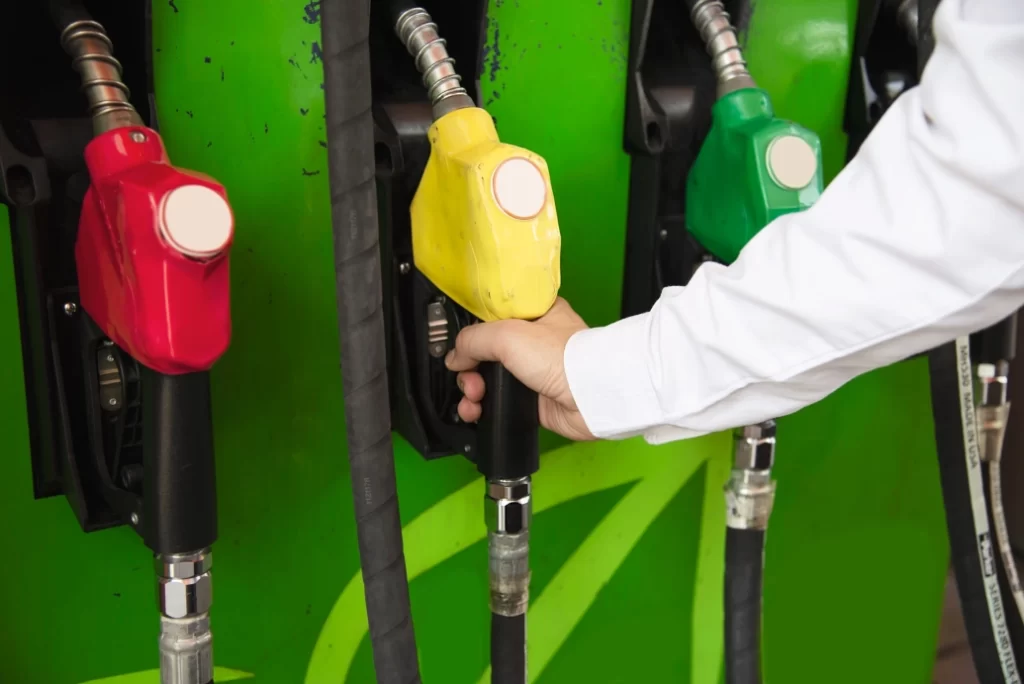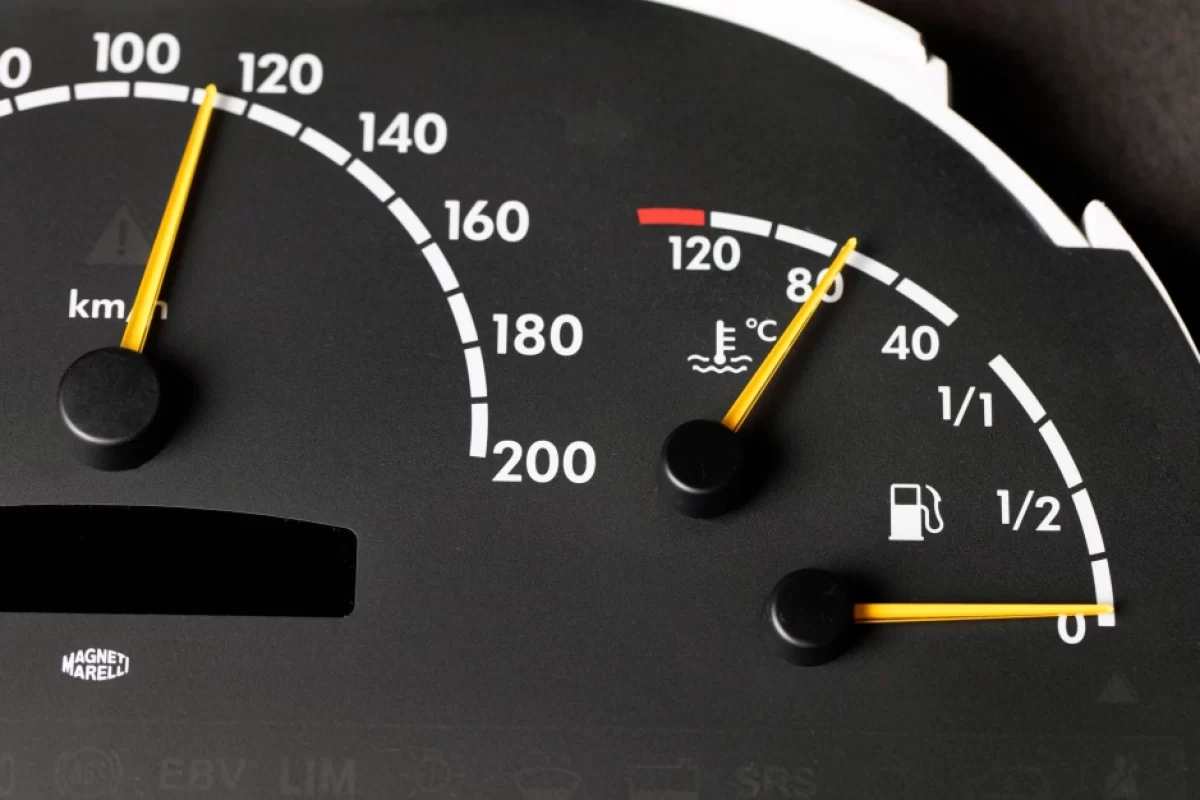Fuel represents a cost for companies that use fleets or industrial equipment. Hence, efficient fuel management is vital for controlling expenses and improving operational effectiveness. Whether overseeing a group of vehicles or a large industrial setup, putting money into a Fuel Management System (FMS) can lead to considerable operating costs and improve fuel efficiency.
What is a Fuel Management System?
The Fuel Management System comprises both components and fuel management system software designed to monitor fuel consumption, delivery, and storage effectively. It provides real-time information on available fuel quantities and consumption, allowing companies to manage their fuel reserves effectively.
Fuel management software (FMS) operates by gathering information from various sources, including fuel pumps and tanks, as well as vehicles to offer immediate observations, on fuel consumption patterns. These setups can be classified into two categories;
- Hardware-Based Systems: Include physical devices like fuel pumps, sensors, and dispensing systems, allowing for direct measurement and control.
- Software-Based Systems: Include card-based systems, onsite fueling solutions, and remote monitoring options that provide digital tracking and analytics.
Key Features of a Fuel Management System
FMS provides real-time fuel monitoring, inventory management, driver and vehicle tracking, and integration with fuel cards. These features allow fleet managers to optimize fuel use, track costs, prevent unauthorized transactions, and maximize their operation efficiency.
Fuel Monitoring and Reporting
With real-time access to data on fuel consumption and usage trends, fleet managers can make proper decisions in fuel allocation and operational efficiency. For example, FMS allows organizations to track consumption patterns, zero in on inefficiencies, and identify avenues for saving more through cost-cutting measures.
Inventory Management
An effective FMS provides robust inventory management capabilities, ensuring that organizations maintain optimal fuel levels. Automatic alerts notify managers of low inventory, preventing disruptions in operations and enabling better budgeting and forecasting.
Driver and Vehicle Tracking
FMS allows monitoring of driver behavior and performance on the road. The company determines improvement areas that lead to wastage by collecting metrics, for instance, speed, routes, tank level, as well as idle time. Thus, it increases overall operating efficiency.
Fuel Card Integration
FMS tracks fuel purchases and prevents unauthorized transactions, significantly reducing the risk of fraud. This feature ensures accurate records of fuel expenses, fostering transparent and accountable management.
How Does a Fuel Management System Work?
Fuel management systems integrate various constituents to gather and process data on fuel consumption and interpretation, which may prove that organizations are in an accurate position to monitor and optimize their fuel utilization. Here’s the breakdown of the entire processes involved:
Data Collection:
- Sensors and Fuel Pumps: Advanced sensors fitted into fuel pumps and storage tanks will continuously monitor the levels and flow rates of fuel. As an example, flow meters may measure the volume dispensed of fuel to each vehicle during refueling.
- Telematics Devices: Telematics devices with a vehicle collect data for fuel consumption, location, speed, and engine diagnostic information. A good example is a telematics system that monitors idle time on vehicles and how much fuel is lost waiting at stops for long periods.
Data Transmission:
The collected data is transmitted to the FMS through various methods, such as:
- Wireless Communication: Many systems use cellular or satellite networks to send real-time data from remote locations to a central server.
- Direct Uploading: In some cases, the data can be uploaded directly from the vehicle to the FMS through a USB or a dedicated connection.
Data Processing:
Once the data reaches the FMS, it undergoes thorough processing to:
- Track Fuel Dispensed: The system calculates the amount of fuel dispensed by relating data from the fuel pump to the data coming into the vehicle through its telematics system.
- Monitor Consumption Patterns: The FMS maintains and analyzes records to include in the history such things as fuel per vehicle mileage, averages miles per gallon, and fuel costs per trip, which could point managers to abnormalities and inefficiencies.
- Identify Anomalies: Such as when a vehicle starts consuming more fuel than initially prescribed, the system can alert fleet managers to investigate matters such as fuel theft or car failure.
Reporting & Alerts:
The FMS generates comprehensive reports and alerts based on the processed data:
- Usage Reports: Detailed reports can provide statistics on fuel consumption by vehicle, so targeted interventions could include coaching drivers on best practices related to fuel-efficient driving.
- Alerts: The system sends automatic alerts about unusual fuel intake, special maintenance needs, or low-inventory levels which allow for prompt responses. For example, if a car is idling for more than the usual time it should automatically alert the driver about the right usage of fuel.
Decision-Making:
Insights gathered from reports and alerts empower fleet managers to make data-driven decisions:
- Optimizing Routes: By analyzing fuel consumption data alongside GPS tracking, managers can identify the most fuel-efficient routes, reducing travel time and costs. For example, rerouting vehicles to avoid heavy traffic can save significant fuel.
- Fuel Budgeting: Using historical data enables organizations to better predict fuel expenses and, thus, to budget and plan more effectively. This is a proactive step toward saving costs and enhancing cash flow.
Benefits of Implementing a Fuel Management System

Setting up a fuel management software is not just a smart decision but a transformative step towards efficiency, security, and sustainability. So, let’s have a look at how the adoption of an FMS can propel an organization forward and unlock a range of benefits that really add to an organization’s operations.
Cost Savings
An FMS tracks fuel use meticulously, helping providers identify waste, optimize fuel usage, and prevent theft. For instance, firms using FMS decrease their fuel costs by as much as 20% within the first year of engaging the system. Providing effective fuel data enables organizations to optimize routes and eliminate unnecessary mileage. Result? A substantial savings on price that can go right back into your business.
Increased Efficiency
FMS automates all fuel reporting and compliance requirements, thus releasing time for other tasks. It also monitors real-time usage of the fuel so that not even a single drop goes in vain, thereby optimizing general operations. This means more time to be used by your team for what matters—growing your business.
Improved Security
Protecting your assets is critically important, and an FMS provides full-bodied security features such as identification of drivers and integration of fuel cards. These safeguards thus eliminate unauthorized use of fuel, thereby helping in reducing the potential risk of fuel theft, so one can rest assured. A high security profile will ensure that you are always confident your resources of fuel are protected.
Environmental Impact
By reducing energy waste, companies can significantly lower their carbon footprint and promote environmental sustainability. Setting up an FMS not only helps your bottom line but also positions your organization as a responsible corporate citizen committed to protecting the planet.
Compliance with Regulations
FMS will enhance compliance through accurate records, and automated reports on the usage of energy and emission. This would not only make the company compliant but would also demonstrate that it honors accountability and transparency.
Different Types of Fuel Management Systems
Effective fuel management is important for firms looking to optimize in today’s fast-paced landscape. Various fuel management systems cater to different needs to ensure that establishments maintain efficiency and cut down on costs.
Onsite Fueling Systems
They are ideal for enterprises with their own fuel storage and dispensing infrastructure. These systems facilitate meticulous tracking and reporting of all transactions, allowing organizations to manage their fuel tanks effectively.
Remote Fuel Monitoring
This type allows operators to know the level of fuel intake at a distance through cloud-based software and IoT. The solutions allow providers to see fuel levels and consumption from afar. Using cloud-based software and IoT, the system will have real-time information that can predict the needs and conditions that may lead to a shortage of energy.
Cloud-Based Fuel Management
Fuel intake, therefore, can be followed in real-time from anywhere through a cloud-based solution. This is beneficial for firms with multiple location because it simplifies the management of fuel use and enhances the decision-making processes.
Mobile Fuel Management Solutions
Mobile solutions enable fleet managers to track and manage fuel usage through smartphones and tablets, offering flexibility and convenience. This mobile accessibility makes it easier to respond to changing demands on the go.
How to Choose the Right Fuel Management System for Your Business
The size of the fleet, fuel demand pattern, budget, and scale should also be put into consideration when choosing a FMS. Smaller fleets require basic monitoring, and larger fleets demand advanced tracking and optimization of routes. Assess your fuel usage variability and ensure the system offers robust analytics and remote monitoring.
Choose a budget-friendly system that balances cost with functionality, avoiding overpaying for unnecessary features. Ensure seamless integration with your existing software and hardware, and prioritize security features to prevent theft and fraud, such as driver identification and fuel card integration. Lastly, look for a user-friendly system supported by responsive customer service for smooth implementation and operation.
Conclusion
Fuel management software is essential tool for organizations looking to optimize fuel usage, reduce costs, and enhance operational efficiency. A quality FMS leverages fuel data to save money by reducing unnecessary cost associated with fuel theft, and foster a more sustainable fleet operation.
Leading management providers like Traxxis GPS, which offers full-scale fuel management tailored specifically for fleet operators seeking to minimize fuel consumption and enhance the efficiency of their tank. Geotab-powered systems integrate advanced features such as predictive analytics for enhanced route optimization, real-time vehicle performance, and behavior monitoring. These tools ensure that organizations minimize energy waste by saving vast amounts of idle times with minimal unnecessary mileage. This not only saves a lot of money on costs but also infuses a more sustainable and efficient operational framework.
Frequently Asked Questions
What is the cost of a fuel management system?
The cost varies depending on the system’s features, scale, and the specific needs of your business. It’s best to get a tailored quote from providers like Traxxis GPS.
Can fuel management systems prevent fuel theft?
Yes, FMS can track fuel transactions and usage in real-time, helping to identify and prevent unauthorized use.
How do fuel management systems integrate with management software?
Most modern FMS offer APIs or integration capabilities to work seamlessly with fleet management and telematics systems.
Are there mobile apps for managing fuel?
Yes, many FMS solutions include mobile apps that allow managers to monitor fuel usage and manage fleets remotely.
Is a fuel management system necessary for small fleets?
Even small fleets can benefit from FMS, as it helps reduce costs and improve efficiency, offering a good return on investment.





